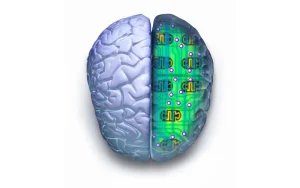Autism, or autism spectrum disorder (ASD), is a prevalent developmental condition diagnosed globally, with an estimated one in 100 children affected, according to the World Health Organization. In the U.S., the prevalence is higher, with approximately one in 36 children diagnosed with autism, as reported by the Centers for Disease Control and Prevention.
A conclusive identification of ASD usually occurs around the age of two to three, although indications of the disorder may manifest earlier. ASD results from a combination of genetic and environmental influences and is linked to brain injury and inflammation. Prematurity, characterized by a birth before the 37th week of gestation, has been recognized as an environmental risk element for ASD, serving as either a primary risk or an additional factor in families with a sibling affected by ASD.
Therefore, it is imperative to delve deeper into the examination of prematurely born children given their notable susceptibility to developmental delays. Premature birth often leads to immediate medical complications and can result in neuromuscular issues like cerebral palsy, intellectual disability, and respiratory conditions. Regular neonatal follow-up has proven to be the most effective method for tracking the neurodevelopmental journey of prematurely born infants. Specific factors, including male gender, cerebral palsy, and low birth weight, have demonstrated associations with unfavorable neurodevelopmental outcomes in preterm infants.
The relationship between preterm birth and autism has been a subject of controversy in research. While some studies propose a connection between delivering a baby preterm and the development of autism, other investigations find no such correlation.
A recent study, presented at the Society for Maternal-Fetal Medicine’s (SMFM) annual meeting, The Pregnancy Meeting, brings forth findings indicating that there is no significant association between preterm birth and autism. The abstract of the study was published in the January 2024 supplement of the American Journal of Obstetrics and Gynecology.
Researchers examined almost 115,000 deliveries spanning a 12-year period from 2005 to 2017, using records from various sources, including hospitals and community clinics in Israel. The study encompassed a diverse range of pregnant individuals, including Jewish and Muslim populations, as well as Bedouins—a minority group within the Muslim community known for leading a nomadic or semi-nomadic lifestyle.
The investigation focused on determining the prevalence of autism diagnoses in children based on different delivery categories: extremely preterm, very preterm, moderate to late preterm, or term.
Among the 114,975 pregnancies analyzed, 0.3% of newborns were extremely preterm, delivered before 28 weeks; 0.6% were very preterm, delivered between 28 to just under 32 weeks; 6% were moderate to late preterm, delivered between 32 to just under 37 weeks; and the remaining 93.1% were delivered at term, between 37 to 42 weeks.
In the initial examination, researchers identified a notable association between preterm delivery and the occurrence of autism (1.6% vs. 0.3% vs. 0.8% vs. 0.7% for extremely preterm, very preterm, moderate to late preterm, and term deliveries, respectively).
However, following a more comprehensive analysis that adjusted for potential factors associated with autism, such as ethnicity, small for gestational age, maternal age, and the infant’s gender, researchers concluded that there was no significant association between preterm delivery and autism.
“The exact cause of autism is complex,” states Dr. Sapir Ellouk, the study’s lead author and an obstetrics and gynecology resident at Soroka Medical Center’s Saban Maternity and Birthing Center in Beer-Sheva, HaDarom, Israel.
“But based on our data, a single obstetric factor is unlikely to be the cause of ASD. A more plausible theory involves the simultaneous presence of multiple factors.”
Read More : Gastrointestinal symptoms and autism spectrum disorder
Reference
https://medicalxpress.com/news/2024-02-significant-association-preterm-delivery-autism.html
https://www.ncbi.nlm.nih.gov/pmc/articles/PMC7452728/










